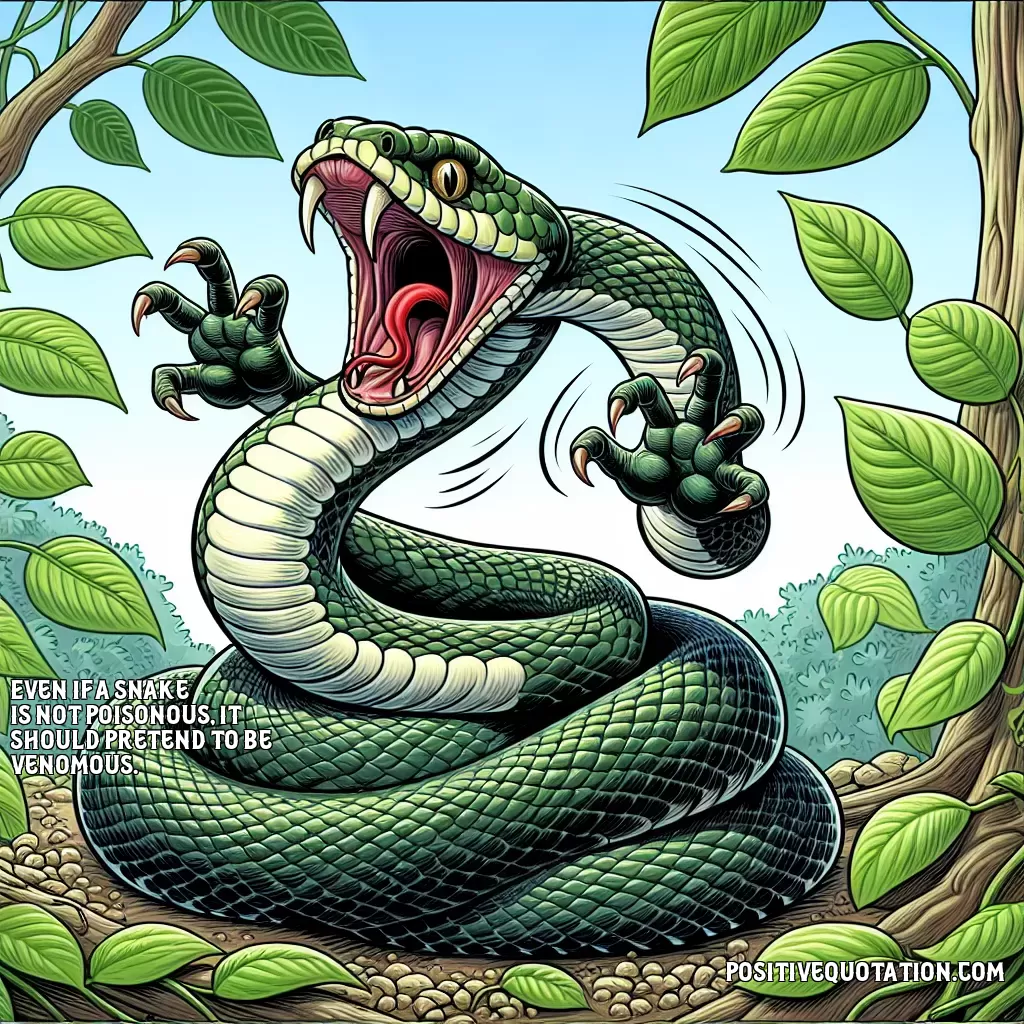
Even if a snake is not poisonous, it should pretend to be venomous.
Author: C. S. Lewis
👁️ 20 views
This quote suggests that appearances and perceptions can be as powerful as reality. In nature, many creatures that are not inherently dangerous use mimicry to deter potential threats. A non-venomous snake might benefit from behaving or appearing as though it is venomous, as this can dissuade predators from attacking it. The core idea here is that projecting an image of strength or danger can serve as a protective mechanism. In human terms, this can be interpreted as the value of confidence and assertiveness. Even if one does not possess power or capability to the degree others might expect, projecting confidence can lead to enhanced respect and influence in social or professional settings. People tend to respect and tread carefully around those they perceive as strong or more knowledgeable. This strategy can be a double-edged sword, however. While it can prevent unnecessary conflicts and be a form of self-preservation, over-reliance on appearances can also lead to potential downfalls, especially if the pretense is discovered. It is a reminder to cultivate genuine skills and abilities even if one uses appearance as a temporary strategy. In summary, the quote illustrates the importance of self-presentation and the psychological impact it has on others' perceptions, but also subtly warns of the need for authenticity and the potential risks of deception.
Quote By: C. S. Lewis
C. S. Lewis (1898-1963) was a British writer, scholar, and theologian, best known for his works of fiction and Christian apologetics. He gained fame with his beloved children's series, "The Chronicles of Narnia," and his theological writings, including "Mere Christianity" and "The Screwtape Letters," which explore faith and morality. A prominent member of the literary group The Inklings, Lewis's influence extends to both literature and religious thought, making him a significant figure in 20th-century culture.
Bio added on: 2025-02-19 12:49:12